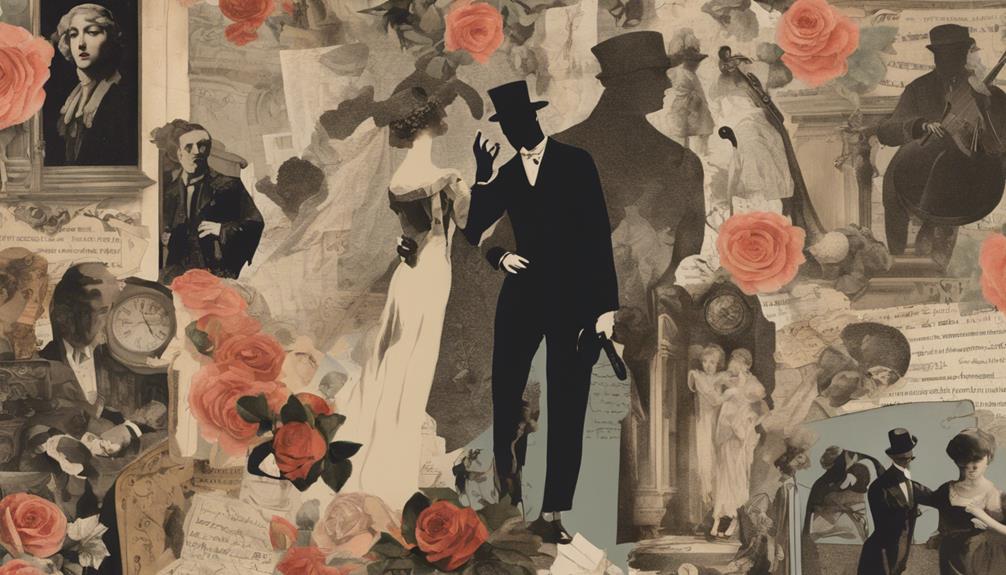Shifting views on extramarital affairs are driven by several factors that intertwine historical context, cultural norms, and technological advancements. You'll notice how society's evolving perceptions of gender roles impact expectations around fidelity. As technology fosters new connections, it reshapes how individuals engage in relationships, often blurring the lines of infidelity. Additionally, media narratives frame public attitudes, normalizing or condemning affairs based on portrayals. Psychological needs, like emotional validation, further motivate individuals to stray. This evolving landscape highlights complexities surrounding infidelity in modern relationships. Keep exploring to uncover the deeper implications of these changing perspectives.
Historical Perspectives on Infidelity

Throughout history, societies have grappled with the complexities of infidelity, often reflecting deep-seated cultural norms and values that shape how individuals perceive and respond to extramarital affairs. The definitions of adultery have varied considerably across different epochs, influenced by legal, religious, and social frameworks. In ancient civilizations, for instance, adultery was often viewed through a legal lens, with severe consequences for women, while men frequently faced little to no repercussions.
Historical attitudes toward infidelity reveal a stark gender bias, with women's fidelity deemed essential for lineage and property inheritance. In contrast, men's extramarital relationships were sometimes tolerated or even celebrated as expressions of virility. This disparity indicates how cultural standards have dictated not only personal relationships but also broader societal structures.
As you explore these historical perspectives, you'll notice that changing definitions of adultery have mirrored shifts in societal values, particularly in relation to gender equality and individual autonomy. This evolving understanding of infidelity is vital for grasping contemporary attitudes and the complexities surrounding extramarital affairs today.
Therefore, recognizing the historical context helps clarify why infidelity continues to provoke such intense debate in modern society.
Cultural Influences and Norms
Cultural influences and norms shape your perceptions of infidelity, dictating what's deemed acceptable or taboo in various societies. In some cultures, extramarital affairs might be viewed as a severe breach of trust, reinforcing strong cultural taboos against such behavior. Societal expectations in these contexts often emphasize fidelity as a cornerstone of marriage, leading to harsh judgments against those who stray.
Conversely, in more liberal societies, attitudes toward infidelity can be more relaxed. Here, cultural norms may frame extramarital relationships as a personal choice, reflecting individual desires rather than moral failings. This shift allows for varied interpretations of loyalty, where open relationships and consensual non-monogamy gain acceptance.
Your understanding of infidelity is, consequently, influenced by a complex interplay of cultural taboos and societal expectations. These factors not only inform personal beliefs but also shape public discourse around infidelity. The consequences of these norms can range from ostracization to a lack of accountability, highlighting the significant role culture plays in how you and others navigate the intricacies of relationships.
Ultimately, your views on infidelity are deeply rooted in the cultural framework that surrounds you.
Impact of Technology

The rise of technology has dramatically transformed how individuals engage in and perceive extramarital affairs, facilitating both opportunities and risks that alter traditional relationship dynamics.
With the advent of online dating platforms, individuals can easily connect with potential partners outside their committed relationships. This accessibility has redefined infidelity, making it more commonplace and, in some circles, more socially acceptable.
Social media further complicates this landscape, providing a space for flirtation and emotional connections that can quickly evolve into affairs. You might find that platforms like Facebook or Instagram often blur the lines between friendship and infidelity, allowing users to engage in behavior that may previously have felt taboo.
Empirical studies indicate that the ease of communication through technology can lead to increased likelihood of affairs, as people feel less constrained by distance or social norms. Additionally, the anonymity that online interactions provide can embolden behaviors that would be less likely in face-to-face encounters.
In this context, technology doesn't just facilitate extramarital affairs; it challenges existing moral frameworks and reshapes societal views on fidelity and commitment. Understanding this impact is essential for steering modern relationships.
Changing Gender Roles
Changing gender roles have greatly influenced perceptions of extramarital affairs, as evolving expectations around fidelity and commitment challenge traditional norms in relationships.
You might notice that as gender expectations shift, so do the dynamics within relationships. For instance, the rise of dual-income households has altered how partners view commitment, often leading to more egalitarian expectations.
As women increasingly pursue careers and personal fulfillment, the notion of fidelity can become more nuanced. You may find that both partners now negotiate the terms of their relationship, leading to a reexamination of what constitutes infidelity. This change reflects a broader societal movement towards individual autonomy and emotional honesty, which complicates traditional views on exclusivity.
Moreover, the dismantling of rigid gender roles encourages conversations about desires and boundaries that were previously unaddressed. You could argue that these dialogues foster a more thorough understanding of relationship dynamics, allowing individuals to redefine fidelity based on mutual respect and shared values.
Consequently, as gender roles continue to evolve, perceptions of extramarital affairs may further shift, reflecting a society that values personal choice and emotional connection over outdated norms.
The Role of Media

Media plays a pivotal role in shaping public perceptions of extramarital affairs, often framing narratives that influence societal attitudes toward fidelity and infidelity. Through various platforms—television, films, social media—the media portrayal of these relationships often normalizes or vilifies infidelity, impacting how you and others view such actions.
For instance, when characters in popular shows engage in affairs, their motivations and consequences are depicted in ways that can either humanize them or paint them as villains. This creates relationship narratives that serve as cultural touchstones, leading you to either empathize with or condemn the choices made by these characters.
Moreover, sensationalist news coverage of high-profile infidelity cases can skew your perception, making affairs seem more prevalent and acceptable. The constant exposure to these narratives may desensitize you to the moral implications of infidelity, shifting your stance from disapproval to acceptance or even intrigue.
In this way, the media doesn't just reflect societal views on extramarital affairs; it actively shapes and reshapes them, guiding your understanding and responses to complex issues of loyalty and betrayal in relationships.
Psychological Factors
Psychological factors considerably influence individuals' decisions to engage in extramarital affairs, often stemming from unmet emotional needs or desires for validation.
Your attachment style plays a significant role in how you navigate relationships. If you have an anxious attachment style, you might seek reassurance and emotional fulfillment outside your primary relationship, perceiving affairs as a means to compensate for perceived deficiencies at home.
These relationship dynamics are complex. When you feel neglected or unappreciated, the allure of an extramarital affair can become tempting. The thrill and excitement of a new connection may provide a temporary boost to your self-esteem, reinforcing personal values around desire and intimacy. Conversely, those with avoidant attachment styles may engage in affairs as a way to maintain emotional distance, avoiding deeper commitments and conversations within their primary relationship.
Understanding these psychological motivations can shed light on why individuals stray. It's not solely about physical attraction; instead, it often reflects deeper emotional needs and the struggle to reconcile personal values with relational expectations.
Legal and Ethical Considerations

Understanding the psychological factors behind extramarital affairs also leads to an examination of the legal and ethical considerations surrounding such actions, which can have profound implications for individuals and families involved.
When you engage in an affair, you mightn't only confront personal guilt but also face significant ethical implications. The betrayal of trust can lead to emotional turmoil that extends beyond the couple, affecting children and extended family.
On the legal side, the ramifications can be equally severe. In some jurisdictions, infidelity can influence divorce proceedings, impacting asset division and alimony. Furthermore, if an affair occurs in the workplace, you could jeopardize your job or face sexual harassment claims, especially if power dynamics are involved.
Recognizing these factors can help you understand the broader consequences of extramarital affairs. The interplay of legal and ethical considerations emphasizes that your choices aren't just personal; they affect a tapestry of relationships and societal norms.
Conclusion
Shifting views on extramarital affairs reflect a complex interplay of historical, cultural, and technological factors.
As societal norms evolve and gender roles shift, you'll see a growing acceptance or condemnation of infidelity based on context.
The influence of media and psychological factors also shape personal perspectives, making it essential to understand these dynamics.
Ultimately, your views on infidelity aren't just personal—they're informed by a broader societal narrative that continues to change and redefine the boundaries of relationships.
